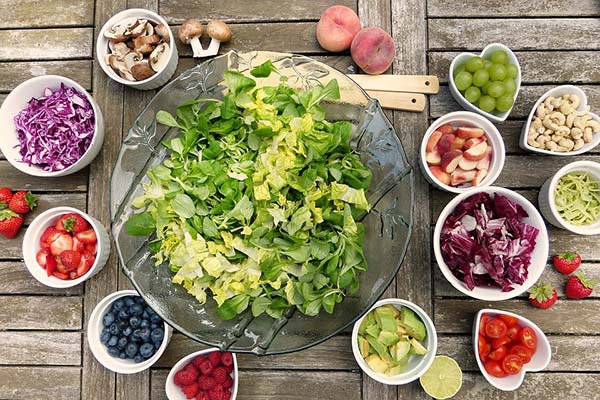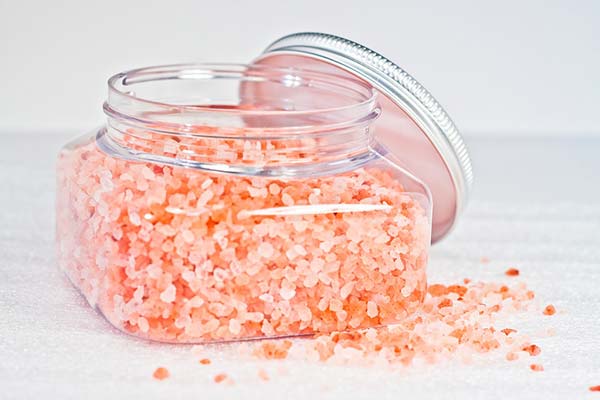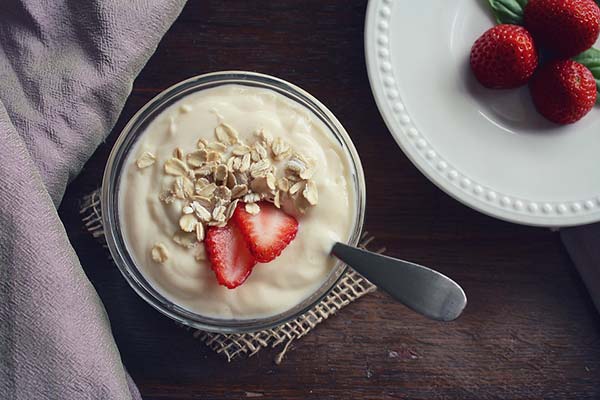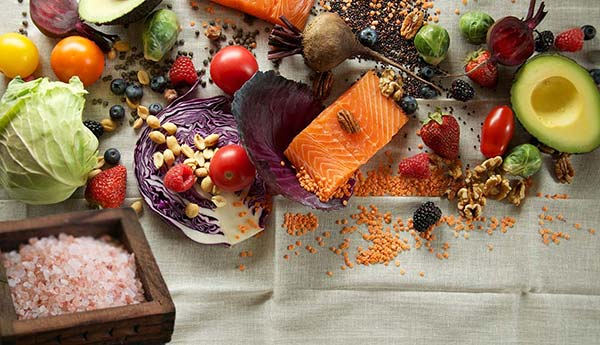One of the major factors of a healthy life is good nutrition.
A well balanced diet forms the basis of a healthy diet and is necessary if you want to improve your health.
A balanced dietincludes foods that contain vitamins and minerals and those which are less in saturated fats and sugars.
Having said so, following are the four groups of edibles that we can bet on, will help you achieve a balanced diet thereby promoting health and wellbeing.
- Fresh fruits and vegetables
- Grains, cereals and legumes
- Himalayan salt
- Meat and poultry
- Dairy family that includes milk and its derivatives

Article Chapters
1. Fresh Fruits & Vegetables
Fruits and vegetables form an amazing source of minerals, vitamins and dietary fiber as well as give your body a wide range of nutrients.
You should ask yourself how many portion of your daily diet is filled with fruits and vegetables.
If the answer is around 4-5 cups each day, then you are on the right track.
But if this is not the case, you should make sure to add them to your plate.
From mangoes to apples and berries, there are so many colorful healthy choices you have, to add to your food plan.
Some fruits such as mangoes and lychees are seasonal and are the center of attraction seasonally while others such as apples and bananas are available all year round.
Likewise, the same goes for vegetables as some such as potatoes are available for the entire year and others such as carrots are seasonal.

2. Grains, Cereals & Legumes
Whole grains such as brown rice and oats are healthier for you than refined ones as they are richer in dietary fiber, minerals, and vitamins.
Whole grains provide protection from heart disease and type 2 diabetes.
They also prevent excessive weight gain and protect from some types of cancer.
Grains and cereals that have added sugars or fat like cakes, biscuits, pies, etc. should only be the ‘occasional foods’ in your dietary pattern and not form the habitual or usual consumption for you.
Legumes and beans are a good source of protein for a balanced diet.
Thus, they should be a definite part of your diet plan as well.
A standard serving for a day should include 1-2 cups of legumes and beans like lentils, chickpeas, etc.

3. Himalayan Salt
Salt has always been an important ingredient in cooking.
Every food is incomplete without the kick of salt.
Apart from adding saltiness to the food, it is also required to fulfill the mineral requirement of the body.
While choosing salt, we mostly don’t think much and just buy the easily available salt in the market that is usually the regular table salt.
Considering the importance of salt one must think and search the best kind of salt for consumption.
One better choice of salt is Himalayan pink salt that is considered to be the pure, unrefined and additive-free salt.
It is hand-picked from the world’s second largest salt mine, khewra salt mine.
This natural salt is known for its rich mineral content.
By choosing this healthy salt you can increase the nutrition value of your food.

4. Meat & Poultry
Meat, chicken, fish, and eggs are also very rich sources of protein.
Adding these foods to your diet plan, not only provide for your daily requirement of protein but also supply you with a wide range of other nutrients like iron, zinc, iodine, essential fatty acids etc.
Fish is a rich source of Omega-3 fatty acids which are very beneficial for a healthy heart, strong hair and glowing skin.
Experts in nutrition recommend the use of both fresh and canned fish such as Salmon.
They opine that the canned fish is less pricey than the fresh one but it is as good in nutrition.

5. Dairy
Milk, cheese, and yogurt are loaded with calcium, vitamins, minerals as well as protein.
They reduce the risk of blood pressure, providing protection against heart disease and stroke.
Dairy products are also very beneficial for bone health and growth and are especially important for growing children.
Children below two years of age should not be given low-fat milk.
In case if you don’t like to drink milk, you can opt for its derivatives like yogurt and cheese for calcium.
One serving of dairy includes a cup of milk or a three-quarter cup of yogurt.
The daily requirement in men is 2-3 servings with the need of up to 4 servings for women.
A balanced diet with regular exercise will work wonders for you to achieve better health and lifestyle.
Although following a diet plan and avoiding scrumptious and mouthwatering edibles is not an easy task, you should try to be consistent in pursuing a healthy dietary pattern.
You can take advice from a dietician for drafting a diet plan for yourself.
Also remember to consult your doctor before starting on a diet plan if you have health conditions like hypertension, diabetes, high cholesterol level, etc.
Author Bio
Hi! My name is Jeffrey Lewis, a blogger at Ittefaq Salt. I love to share my knowledge and experiences with others and help to bring a positive change in their lifestyle. I enjoy enlightening others about unknown and little-known facts about health, nutrition, fitness, and natural beauty.

